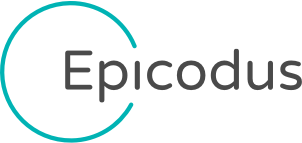By Michael Kaiser-Nyman
Now that Epicodus offers so many different courses, we often get students unsure of what to take after they finish Introduction to Programming. If you're an Epicodus student or anybody wondering which language to learn, the first thing you need to decide is if you want to focus more on front-end or back-end development. Front-end developers spend their time making things look and work well, obsessing over layouts, navigation, colors, and design. If this type of work appeals to you, your best bet is to take CSS and Design classes at Epicodus.
If you're more interested in back-end development, you have several choices of languages: C#, Java, PHP, and Ruby are all offered at Epicodus. My best advice about how to choose is not to worry too much. Most modern programming languages have more similarities than differences, and Epicodus graduates often find themselves working in different languages than they studied in school. Back-end programmers often switch languages as they change jobs, or even as they build different types of software at the same job. So don't stress too much about making the right choice! That said, each language has found a bit of a niche, and depending on your interests, you might be attracted to one over another.
C#
C# is most popular among bigger established businesses, often for building internal software. Because it's been around for a long time and has the backing of Microsoft, it is one of the most in-demand languages in the job market. C# has also been going through a bit of a rebirth lately, with Microsoft open sourcing the language and surrounding platform, porting it to run on Mac and Linux, and incorporating many of the best features of other languages. If you like the idea of working for a larger company on business software, C# is a great choice.
Java
Java is also a favorite of enterprise companies, but its appeal is broader as well: it's one of the most popular of all programming languages, and it's used in everything from for high-performance processing to building Android user interfaces. Because Java has been very popular for a very long time and is used in so many applications, it is also a very high-demand language. If you're interested in working for an enterprise-level company, as an Android developer, or in high-performance applications, Java could be a good language to learn.
PHP
PHP is by far the most popular backend language today, with 80 percent of websites utilizing it 'server-side'. It is perhaps best known for it's use in content management systems like Wordpress, Drupal, and Joomla. But the versatility of the language and the frameworks it powers make employment options numerous and diverse. If you're keen to work for a fast paced agency that builds websites for lots of clients, or maintain the security and stability of a huge complex of government websites, or if you like the idea of building out small sites for brands, businesses, and organizations - In any of these cases, PHP would be a great way to go.
Ruby
Ruby is a favorite language of developers building interactive web applications. If an app involves users creating accounts, entering information, and interacting with dynamic content, there's a good chance it is built with Ruby. Ruby became popular because the Rails framework, which is written with Ruby, simplified many of the common tasks associated with building web applications. It's most popular with startups and smaller companies who are looking to build their product quickly.
Though each language has its niche, there is plenty of crossover. For example, Rails' popularity inspired copycats in just about every language, and so you'll see interactive web applications written in C#, Java, and PHP, with Rails-like frameworks including .NET MVC, Spring, and Laravel. Even at one company, you might find them using PHP for their marketing site, Ruby for their web application, and Java for their back-end processing.
The most important thing is to get the basic principles of coding down, practice a lot, and be ready to change to another language when your job inevitably does.

























